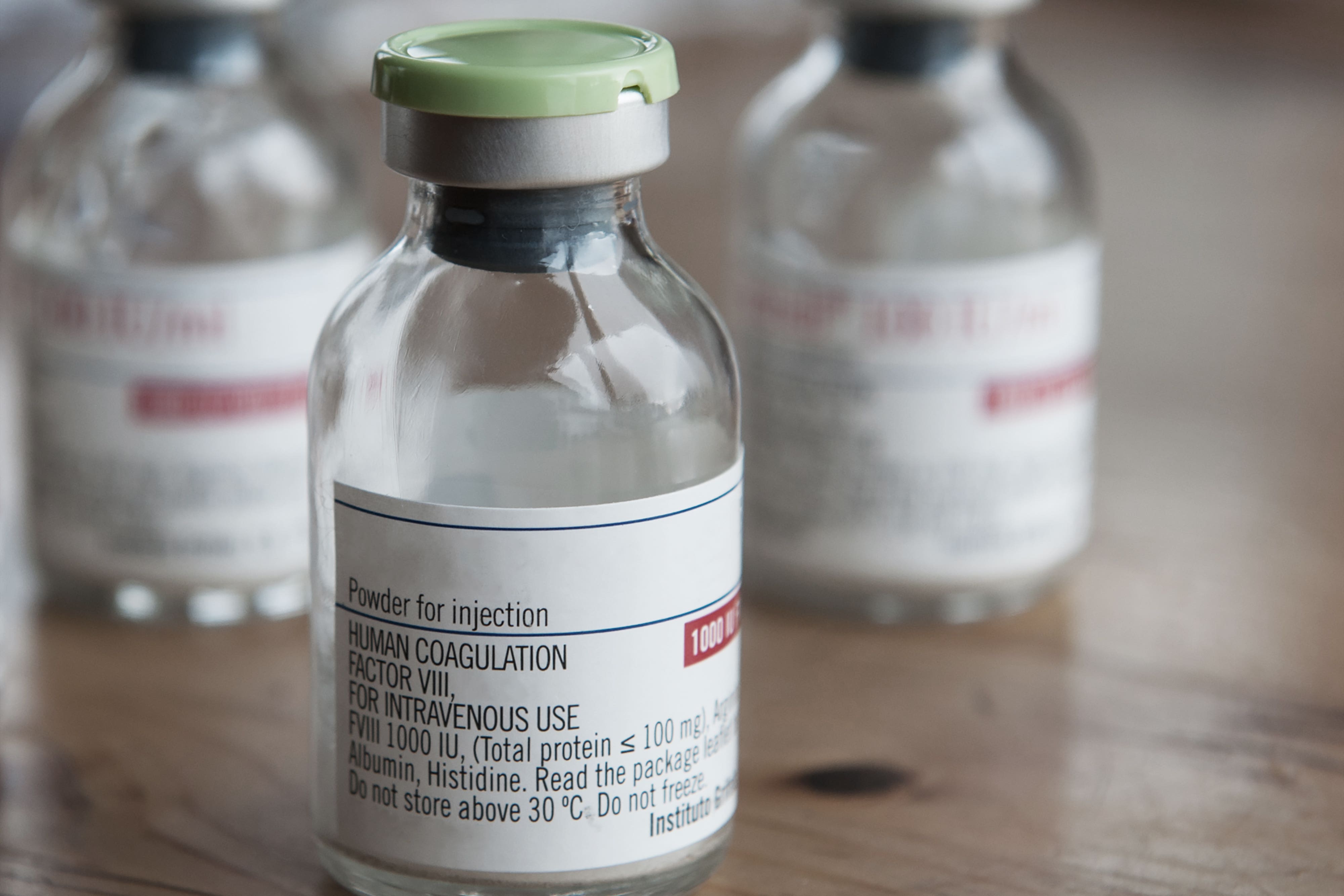Scottish minister welcomes interim blood scandal compensation payments
It is estimated about 3,000 people in Scotland were infected with Hepatitis C through NHS blood or blood products in the 1970s through to 1991.

Your support helps us to tell the story
From reproductive rights to climate change to Big Tech, The Independent is on the ground when the story is developing. Whether it's investigating the financials of Elon Musk's pro-Trump PAC or producing our latest documentary, 'The A Word', which shines a light on the American women fighting for reproductive rights, we know how important it is to parse out the facts from the messaging.
At such a critical moment in US history, we need reporters on the ground. Your donation allows us to keep sending journalists to speak to both sides of the story.
The Independent is trusted by Americans across the entire political spectrum. And unlike many other quality news outlets, we choose not to lock Americans out of our reporting and analysis with paywalls. We believe quality journalism should be available to everyone, paid for by those who can afford it.
Your support makes all the difference.Thousands of Scots who fell victim to the infected blood scandal will receive £100,000 by the end of the month, it has been announced.
Patients who were infected with Hepatitis C or HIV in the 1970s and 80s – or if they have died, then their partners – will get the interim compensation payment next week, the UK Government has announced.
Maree Todd, Scotland’s public health minister, welcomed the Cabinet Office announcement which came after a report published in July by infected blood inquiry chairman Sir Brian Langstaff said the payments should be made “without delay”.
“We recognise how important the issue of interim payments has been for Scottish Infected Blood Support Scheme (SIBSS) members, and those in the other UK support schemes, who have suffered for so long,” the Holyrood minister said.
“The interim compensation payments will build on the support already provided by SIBSS to many of those affected by this tragedy.”
The payments will not be subject to any tax or national insurance deductions, neither will they affect any financial benefits support being received.
It is estimated about 3,000 people in Scotland were infected with Hepatitis C through NHS blood or blood products in the 1970s through to 1991. Some were also infected with HIV in the early 1980s.
Infections were not just confined to Scotland, with people across the UK and around the world falling victim.
The total bill to the taxpayer for the initial payments to victims is expected to reach around £400 million for the whole UK, and the government is set to respond to any further recommendations made by the inquiry when it concludes next year.
Ms Todd said: “The Scottish Government is grateful to Sir Brian for the interim report and welcomes the UK Government’s commitment to funding the interim payments.”
The health minister added: “Existing SIBSS beneficiaries – both infected beneficiaries and widows, widowers or long-term partners of an infected beneficiary who has died – will receive an interim payment of £100,000 on October 28 and should have received or will shortly receive a letter from SIBSS setting out details.
“These one-off interim payments are being administered by the Scottish Ministers in conjunction with NHS National Services Scotland on behalf of the UK Government.”
The infected blood inquiry, which was announced by then-prime minister Theresa May in 2017 and began the following year, has taken evidence from more than 5,000 witnesses during hearings across all four nations of the UK.
It has featured harrowing evidence from patients and their families who described being kept in the dark about the risk of HIV infection among haemophiliac patients, having to keep their diagnoses private through fear of vilification at the time of the Aids crisis, and living with the physical effects of HIV.
Most of those involved had the blood-clotting disorder haemophilia and relied on regular injections of the US product Factor VIII to survive.
They were unaware they were receiving contaminated product from people who were paid to donate, including prisoners and drug addicts.
Patients were injected for years despite repeated warnings at the top of government.
And some victims were infected after receiving blood transfusions.
Across the UK new cases of HIV and hepatitis continued to be diagnosed decades after the first contaminations, resulting in many early deaths.